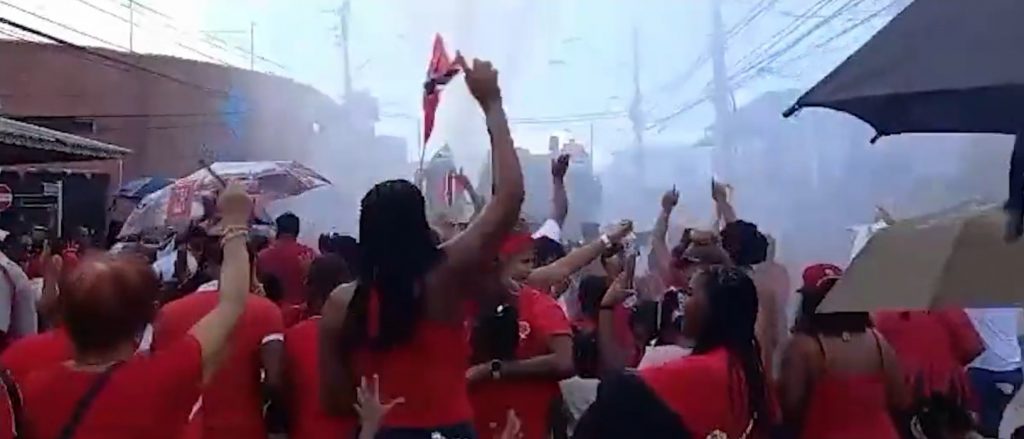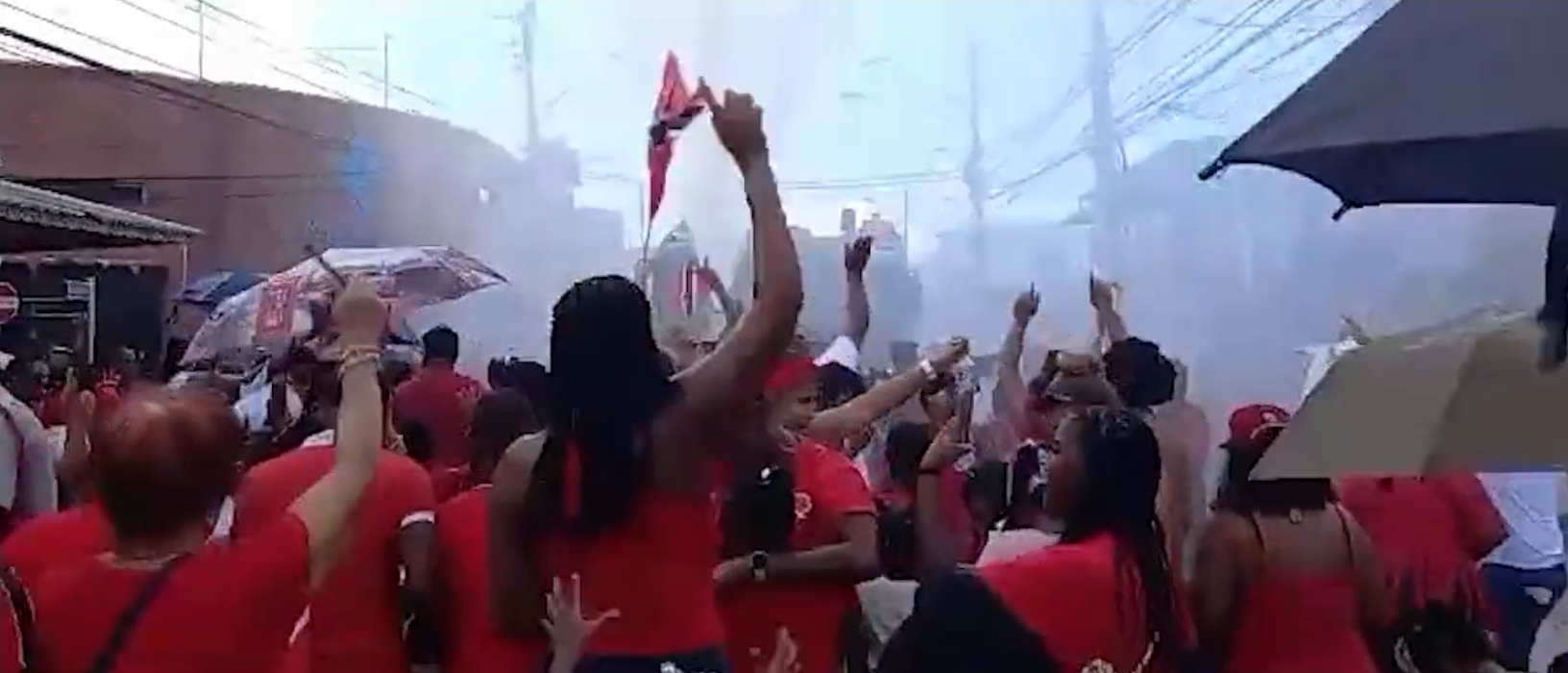In recent years, social media platforms have become battlegrounds for political and racial discourse, with certain figures using these platforms to disseminate subtle, yet harmful, narratives. One such example is the recent Facebook post by social activist Inshan Ismael, who has often been a vocal critic of the government in Trinidad and Tobago, which is led by an Afro-Trinidadian. His post on the country’s Independence Day celebrations is not just a critique of public spending but a veiled attempt to stoke racial division, revealing underlying biases that need to be critically examined.
On Independence Day, a celebratory event saw a fire tender being used to spray water on citizens as they enjoyed street festivities. This was a joyful moment, a symbolic act of unity and community spirit. However, Ismael’s post twisted this scene into something nefarious, drawing a connection between this harmless celebration and the challenges faced by the country’s healthcare system.

His post reads: “FIRST CLASS HEALTHCARE PAID FOR BY OUR TAX DOLLARS WHILE YOU AND YOUR CHILD DIE WAITING FOR TREATMENT… DOH WORRY, IT HAVE PLENTY FOR PAN AND FETE WITH 10 MILLION DOLLAR FIRE TENDER TO SOAK ALLYUH DOWN…”
At first glance, the post seems like a critique of government priorities, highlighting the disparity between funding for public services like healthcare and cultural celebrations. However, the language and underlying implications reveal much more.
Ismael’s comments are not just about fiscal responsibility; they are loaded with what can be described as “dog whistle” attributes—subtle cues intended to resonate with those who share similar biases. The use of phrases like “Pan and Fete” is particularly telling. These terms are deeply associated with Afro-Trinidadian culture, specifically Carnival and other celebrations that are central to the identity and cultural expression of the Afro-Trinidadian community.
By juxtaposing these cultural symbols with the image of children dying in hospitals, Ismael is subtly suggesting that the government, and by extension the Afro-Trinidadian community, prioritizes their cultural events over essential services that could save lives. This not only misrepresents the situation but also fuels racial tensions by implying that one group’s joy comes at the direct expense of another’s suffering.

Moreover, Ismael’s critique would likely be different if the resources were used for an event or celebration closely associated with the East Indian community in Trinidad and Tobago. History has shown that when public resources are allocated to events like Divali Nagar or Phagwa, which are integral to the Indo-Trinidadian community, there is no outcry from Ismael or similar activists. This double standard is crucial to understanding the deeper racial undertones of his criticism.
By selectively targeting Afro-Trinidadian cultural events, Ismael’s post not only dismisses the value of these celebrations but also subtly promotes the idea that Afro-Trinidadians are irresponsible in their use of public resources. This kind of narrative perpetuates harmful stereotypes and deepens divisions within the already sensitive racial dynamics of Trinidad and Tobago.
The issues within Trinidad and Tobago’s healthcare system are real and pressing. However, to use this as a vehicle to undermine a cultural event is not just unfair, but also disingenuous. It distracts from the real conversation that should be taking place about how to improve public services for all citizens, regardless of their racial or cultural background.
Constructive criticism of government policies and spending is necessary for a healthy democracy. However, it must be done in a way that is fair and inclusive, rather than divisive and racially charged. Ismael’s post, unfortunately, does the latter, cloaking divisive rhetoric in the guise of fiscal responsibility.
Inshan Ismael’s post on Independence Day might appear on the surface as a critique of government spending priorities, but beneath the surface, it reveals a troubling narrative. By using language that subtly targets Afro-Trinidadian culture, Ismael perpetuates a divisive rhetoric that undermines the unity and diversity that should be celebrated in Trinidad and Tobago. It is essential for citizens to recognize and challenge such narratives, ensuring that public discourse remains focused on constructive criticism rather than racial division. Only by doing so can we work towards a more inclusive and united nation, where all cultures and communities are respected and valued equally.

